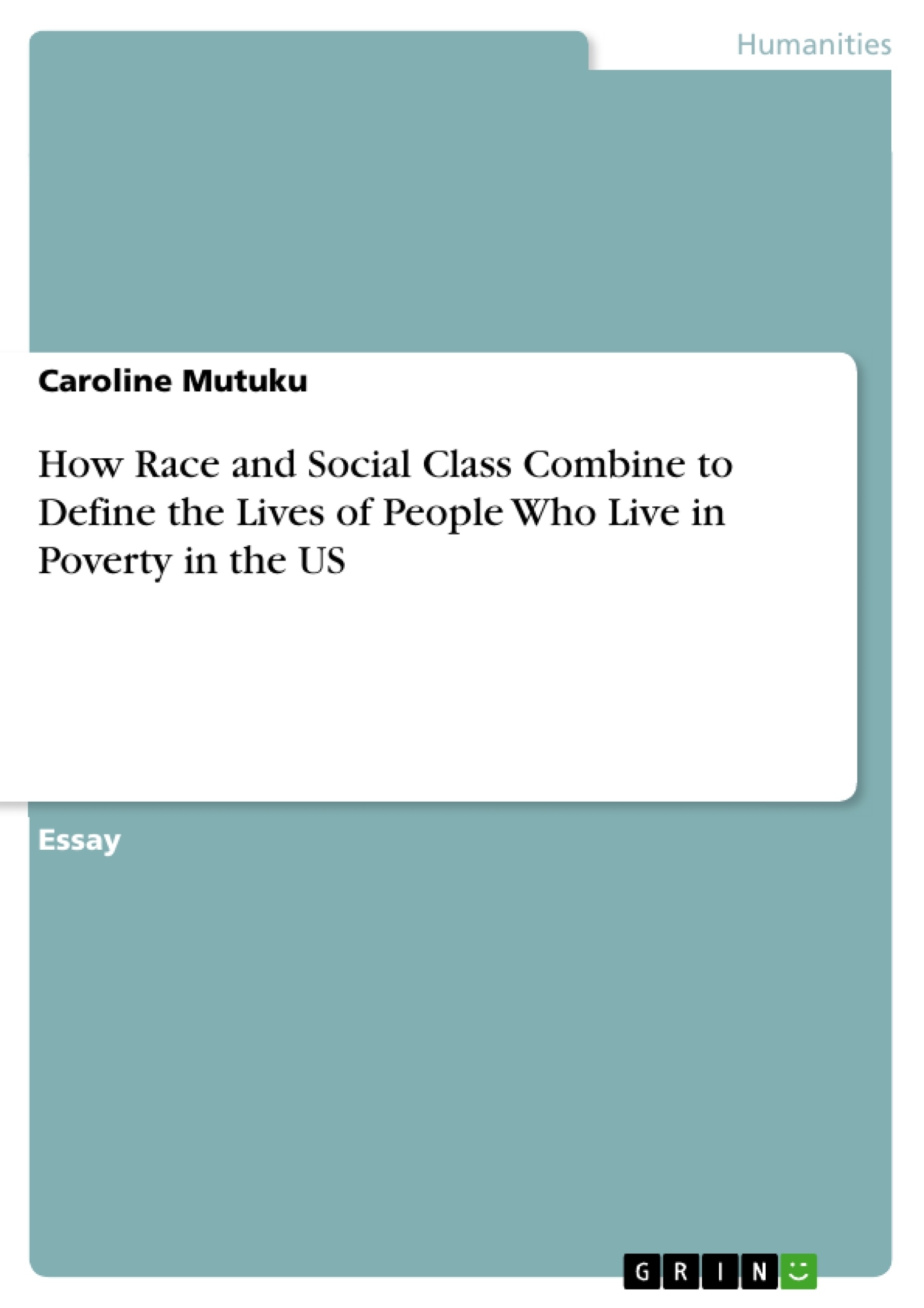It appears that race and social status interact in a synergistic manner in defining poverty in the United States. Social status has always been associated with poverty in which some populations in different geographical regions, in the US are characterized by poverty owing to their socioeconomic status. However, political issues have also been found to be among the most contributing factors. Ordinarily, African American people who have always been accorded the second-class status reflect poverty trends, which are attributable to the experiences during slavery. This explains why some US states comprise of high percentages of people living below the poverty-line. In general, the population living in poverty accounts for 14.3 percent of the total US population. However, it is worth noting that, some states records poverty rates as high as 48 percent. For instance, Mississippi State records the highest poverty level in the US. From a sociological perspective, the issue of race and social status can be explained by the situation in the Mississippi Delta where most African Americans live in poverty. Therefore, this paper will explain how race and social status combine to define the lives of people living in poverty by discussing poverty in the Mississippi Delta.
Inhaltsverzeichnis (Table of Contents)
- How Race and Social Class Combine to Define the Lives of People Who Live in Poverty in the US
- Poverty in the Mississippi Delta
- Causes of Poverty among the African American Population
- Illiteracy
- Unemployment
- Historical Perspective: Slavery and Poverty
Zielsetzung und Themenschwerpunkte (Objectives and Key Themes)
This paper explores the complex interplay between race and social status in shaping poverty in the United States, focusing specifically on the Mississippi Delta. The paper examines how historical factors, particularly the legacy of slavery, have contributed to persistent poverty in the region.
- The impact of historical factors, particularly slavery, on poverty in the Mississippi Delta
- The role of illiteracy and unemployment in perpetuating poverty among African Americans in the region
- The relationship between social status, race, and poverty, particularly in the context of the Mississippi Delta
- The socio-economic conditions and poverty rates in the Mississippi Delta compared to national averages
- The persistence of poverty and its impact on the lives of individuals and communities in the Mississippi Delta
Zusammenfassung der Kapitel (Chapter Summaries)
- The introduction establishes the link between race, social status, and poverty in the United States, highlighting the specific case of the Mississippi Delta as a significant example.
- The paper delves into the historical context of poverty in the Mississippi Delta, tracing its roots back to the era of slavery and plantation agriculture.
- This section analyzes the causes of poverty among African Americans in the Mississippi Delta, focusing on the roles of illiteracy and unemployment.
- The chapter specifically addresses the issue of illiteracy as a contributing factor to poverty in the region, exploring the challenges faced by educational systems and the high rate of teenage pregnancies.
- Unemployment is discussed as a major cause of poverty in the Mississippi Delta, examining the economic realities of the region and the impact of gender inequity.
- The final chapter delves into the historical perspective of slavery and its lasting effects on poverty in the Mississippi Delta, connecting the experiences of African Americans to their current social and economic realities.
Schlüsselwörter (Keywords)
The primary keywords and focus topics of this work include poverty, race, social status, Mississippi Delta, African Americans, slavery, illiteracy, unemployment, historical context, economic conditions, and social inequality. These terms highlight the central themes and concepts investigated in the paper, particularly the interrelationship between race, social status, and poverty in the Mississippi Delta.
Frequently Asked Questions
How do race and social class combine to define poverty in the US?
They interact synergistically; historical factors like slavery have placed certain racial groups in lower socioeconomic statuses that persist across generations.
Why is the Mississippi Delta highlighted in this study?
The Mississippi Delta has some of the highest poverty rates in the US, particularly among African Americans, making it a significant case for sociological analysis.
What role does the legacy of slavery play in modern poverty?
The "second-class status" accorded to African Americans during and after slavery created systemic barriers to wealth and education that remain relevant today.
How does illiteracy contribute to the poverty cycle in the Delta?
High illiteracy rates, often linked to underfunded educational systems, limit job opportunities and perpetuate economic hardship.
What are the main causes of unemployment in the region?
Unemployment is driven by the lack of diverse industries, gender inequity, and the historical reliance on low-wage agricultural labor.
- Quote paper
- Caroline Mutuku (Author), 2018, How Race and Social Class Combine to Define the Lives of People Who Live in Poverty in the US, Munich, GRIN Verlag, https://www.grin.com/document/413652



